On the afternoon of May 22, the National Assembly Delegation (NAD) of Hue City discussed in group 7 with the delegations of Kien Giang , Thai Nguyen, and Lang Son about three draft resolutions directly related to people's lives: Exemption and support of tuition fees for high school students, universalization of preschool education for children from 3 to 5 years old, and extension of exemption of agricultural land use tax.
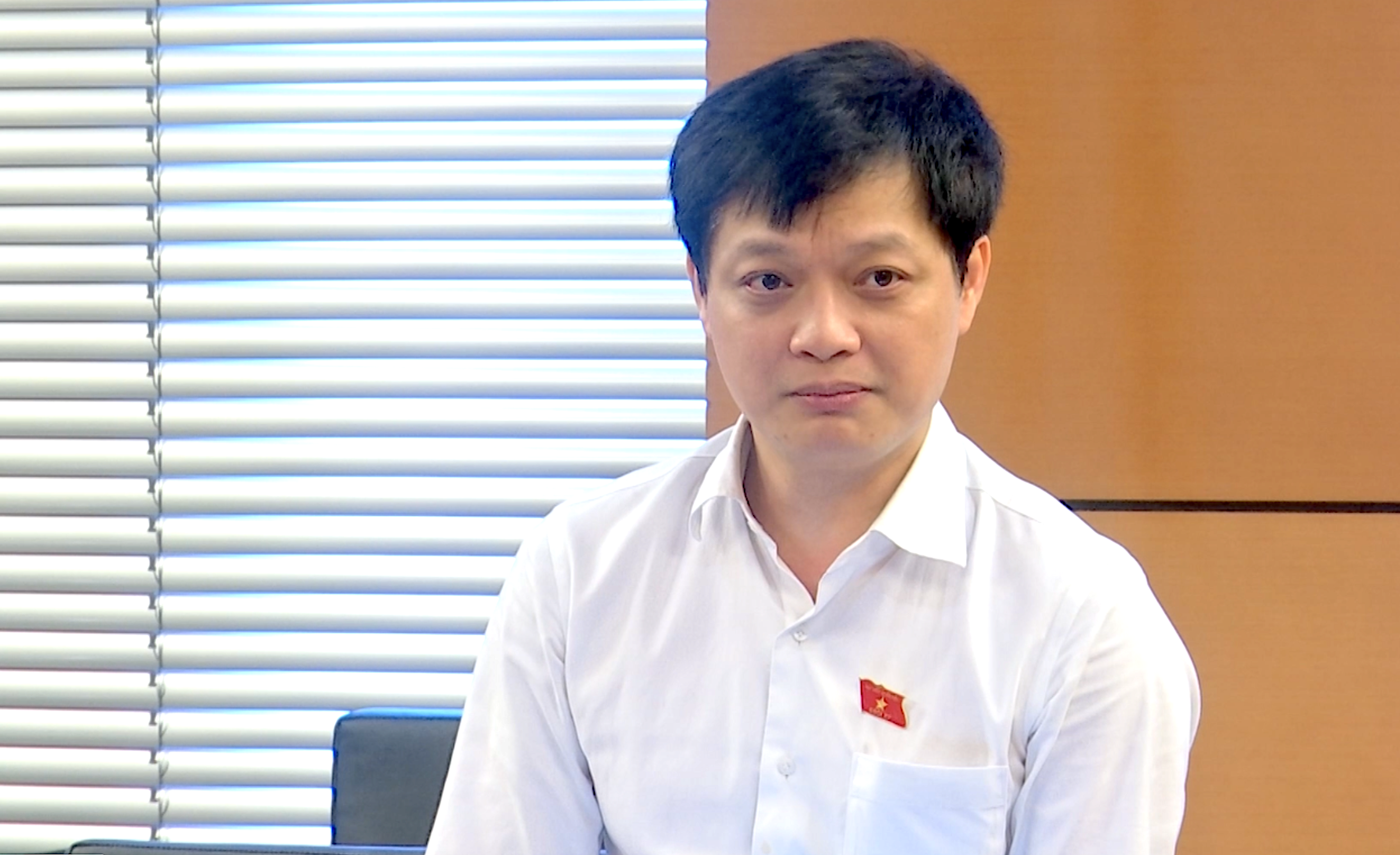 |
| Delegate Nguyen Hai Nam said that investing in education is making a revolution for the future. |
“If done well from the beginning, children will be able to learn on their own for life.”
Speaking at the discussion, delegate Nguyen Hai Nam (National Assembly Delegation of Hue City) opened with an association from the work “ A Fierce Childhood ” by writer Phung Quan. The character Mam, a boy who joined the revolution just because of his love for his mother and his homeland, once said “Revolution is a bachelor of tens of millions, hundreds of millions”. That seemingly naive statement, according to delegate Nam, suggests a truth: Investing in education is making a revolution for the future.
“European and American scientists have shown that the age from 3 to 7 is the “golden period” for language development, worldview formation and cognitive foundation. Children at this age are like dry cotton, learning very quickly and effectively. If we teach English, life skills, and basic thinking from this age, they will learn very well on their own later on,” Mr. Nam emphasized.
From those arguments, he believes that universalizing preschool education is necessary, but equally important is the equal allocation of resources among localities. “For well-off households, support is not so important. But for the poor, support for learning costs and allowances is an important support, contributing to increasing social equality,” said Mr. Nam.
Delegate Nguyen Cong Hoang (National Assembly Delegation of Thai Nguyen province) raised a series of big questions about the understanding and implementation of "universal preschool education".
According to Mr. Hoang, universalization does not stop at exempting or reducing tuition fees for some groups, but must ensure that all children between the ages of 3 and 5 can go to school and have a certificate of program completion.
“Currently, the resolution only focuses on children aged 3 and above, but what about children under 3? They also attend kindergarten, but do not receive any support. Meanwhile, this is the age group that parents, especially workers, have difficulty taking care of,” said Mr. Hoang.
Not only that, Mr. Hoang also believes that limiting the support to only workers' children is unfair. "What about the children of farmers, teachers, doctors, nurses? All of them deserve support so that they can go to school early," Mr. Hoang stated his opinion.
He suggested that the National Assembly should consider a “two-in-one” solution: universalizing education for children aged 3 to 5, and providing support for children under 3. “If this is done well, it will help families reduce financial pressure and limit accidents caused by young children not receiving professional care,” Mr. Hoang emphasized.
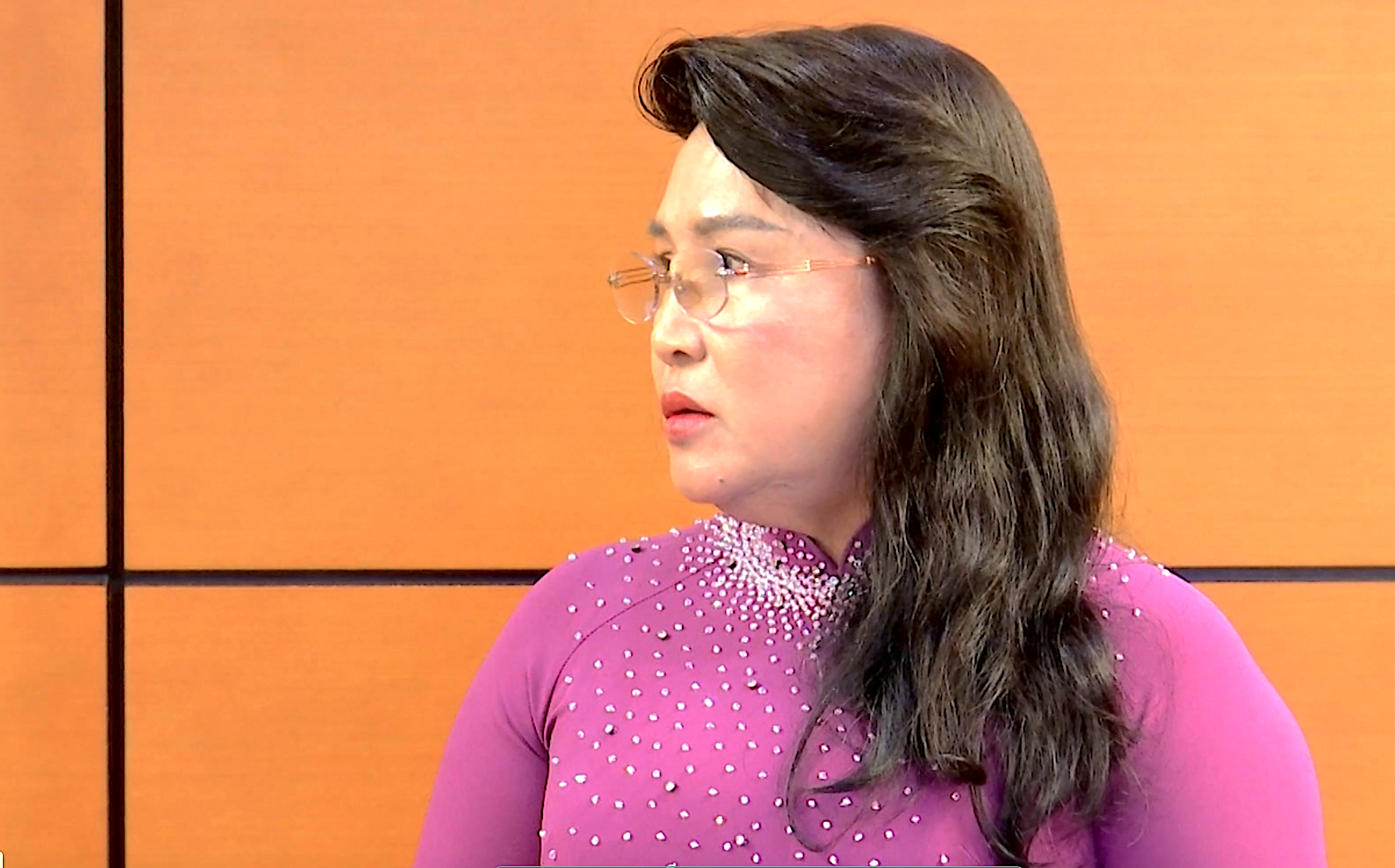 |
| Delegate Nguyen Thi Kim Be proposed that it is necessary to expand the scope of tuition support to include children studying at private institutions. |
Don't let popularization just be on paper.
As an experienced person in the education sector, delegate Nguyen Thi Kim Be (National Assembly Delegation of Kien Giang province) expressed her concern if the National Assembly passed the resolution without appropriate resources.
“We have seen that when implementing the new general education program, the Central Government said it would allocate funds, but when implementing it, localities had to take care of everything from teacher training to infrastructure investment,” Ms. Kim Be shared. According to her, if this approach continues, poor provinces will face difficulties, or even fail in universalization.
From that reality, she recommended that the Government should have a specific financial support plan for localities that have not been able to balance their budgets. At the same time, it is necessary to consider the human resource problem - training enough and qualified preschool teachers.
One notable point that Ms. Kim Be emphasized is the need to expand the scope of tuition support for children studying at private institutions. “Currently, due to the lack of public schools, many families have to send their children to private schools. If that child also studies the national preschool program, the State should have appropriate support policies to ensure that the child’s right to education is not overlooked,” Ms. Be commented.
Returning to preschool education, delegate Nguyen Cong Hoang emphasized: “In preschool education, the top priority must be taking care of children’s physical health. Knowing how to eat and sleep is already good, then we can talk about studying.” He warned that if universalization is achieved but there is a lack of teachers and schools, it will only be a formality.
The enthusiasm of local delegates has highlighted a reality: Preschool education, the beginning of all beginnings, is a bottleneck in both mechanism and resources. Without proper investment from the Central Government, the goal of comprehensive universalization will be difficult to achieve. And if support is only given to children aged 3 and above and the nursery group is neglected, fairness will also be affected.
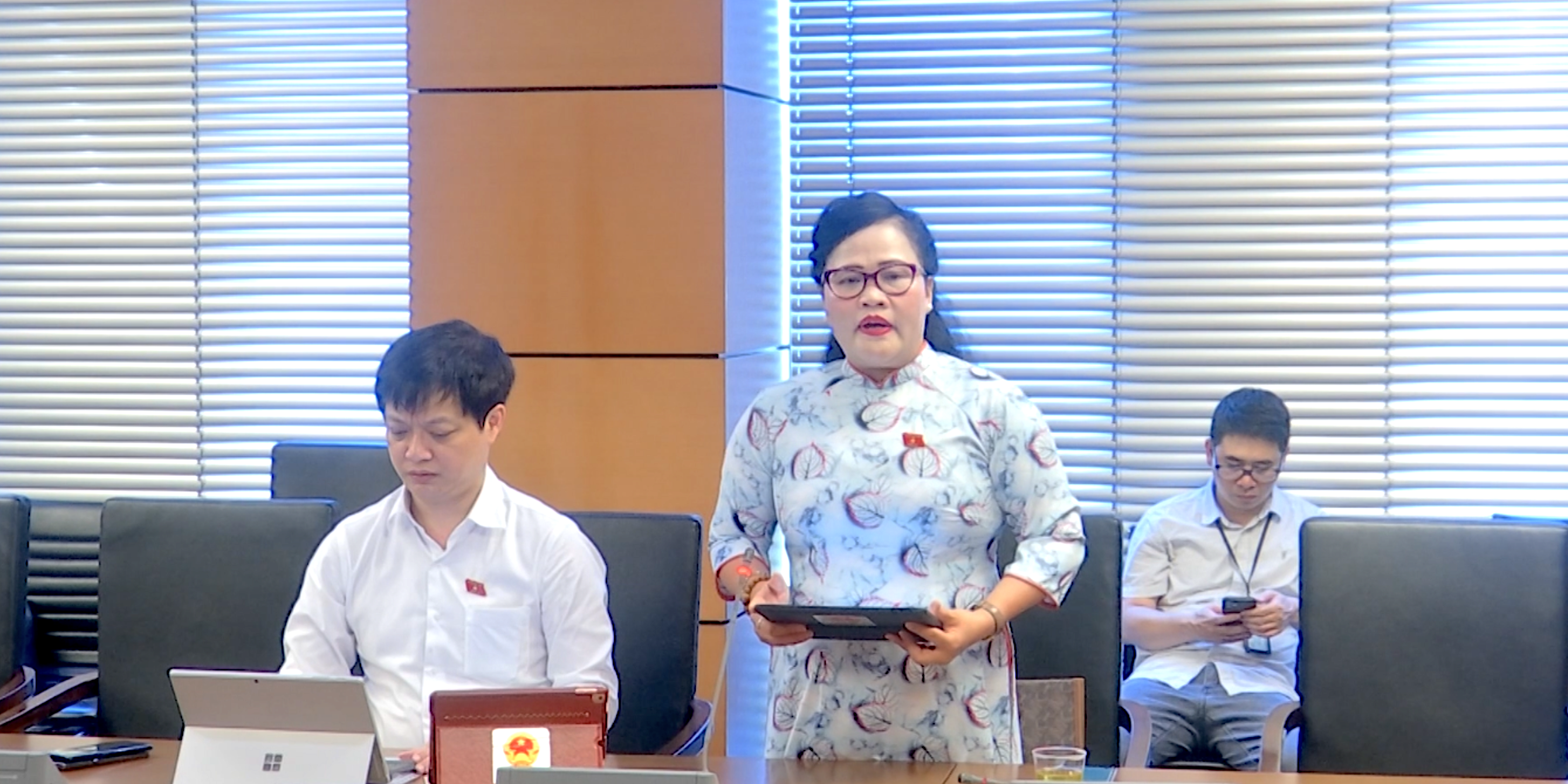 |
| Delegate Nguyen Thi Suu requested clarification of regulations related to tax reduction - which is being left open in the draft submitted to the National Assembly this time. |
Agriculture needs more than just tax exemption
In the discussion on exemption and reduction of agricultural land use tax, delegate Nguyen Thi Suu (Deputy Head of the National Assembly Delegation of Hue City) brought a very different perspective. She not only proposed maintaining tax exemption but also requested clarification of regulations related to tax reduction - which is being left open in the draft submitted to the National Assembly this time.
“We are basing on resolutions from 1993, but currently, most of the agricultural land area is tax-exempt. The amount of tax exemption each year is up to tens of thousands of billions of VND. Meanwhile, the structure of agricultural GDP has decreased to only one digit. So where is the policy effectiveness?” Ms. Suu asked.
She also pointed out the shortcomings in the method of calculating agricultural land tax, which is still based on the classification criteria from 1996 - which is no longer suitable for the current production situation. At the same time, she proposed adding regulations on land recovery or full tax collection for organizations that are allocated land but do not directly use it, to avoid abuse of the tax exemption policy.
“Is the tax exemption and reduction policy that has lasted for three decades through a resolution still appropriate? I suggest researching and developing a separate Law on Agricultural Land Use Tax to create a more stable, transparent and sustainable legal corridor,” she suggested.
In this content, delegate Nguyen Hai Nam also suggested that the Ministry of Finance should boldly build a new law instead of continuing to extend the tax exemption and reduction policy through temporary resolutions from 1993 to present.
Source: https://huengaynay.vn/chinh-tri-xa-hoi/theo-dong-thoi-su/dau-tu-cho-giao-duc-mam-non-can-di-kem-nguon-luc-phu-hop-153898.html







![[Photo] Da Nang: Hundreds of people join hands to clean up a vital tourist route after storm No. 13](https://vphoto.vietnam.vn/thumb/1200x675/vietnam/resource/IMAGE/2025/11/07/1762491638903_image-3-1353-jpg.webp)










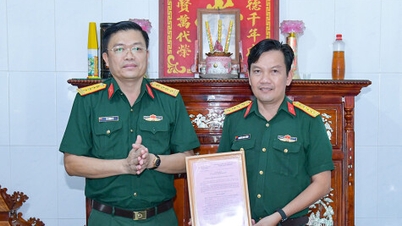









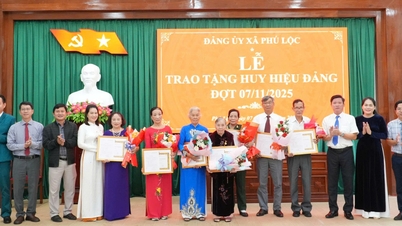
























































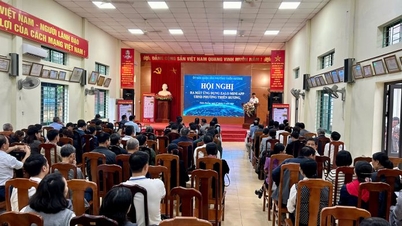




















Comment (0)